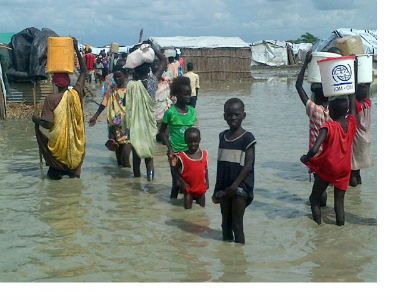 A newsletter by the South Sudan Law Society (SSLS)
A newsletter by the South Sudan Law Society (SSLS)
Contents
Dear Readers,
It is my pleasure to share with you a revival of the SSLS’s newsletter, Peace and Justice. During the 22-year north-south civil war in Sudan, the SSLS published a periodic newsletter entitled Peace and Justice to bring attention to the very serious concerns of human rights and rule of law in the war-torn country. Now, some 20 years later, South Sudan again finds itself embroiled in a brutal conflict. We have decided to revive this newsletter to provide a forum for opinion shapers to contribute ideas on how to promote sustainable peace with justice in South Sudan. After all, peace without justice is little more than a temporary respite from war.
The four articles in this edition provide a glimpse into the pain and suffering that conflict has caused to the people of South Sudan and the challenges that the Government of South Sudan faces in establishing a functional justice system. Belkys Lopez’s piece on the legacy of unaddressed trauma highlights the role of post-traumatic stress disorder (PTSD) and mental health issues in aggravating conflict. My article examining barriers to justice shares some observations from my years of service as a lawyer and activist in South Sudan. Priscilla Nyagoah provides insights from research that she conducted with internally displaced persons (IDPs) in Juba. John Clement Kuc, the chairperson of the SSLS and former court of appeals judge for Greater Upper Nile region, offers an overview of key duties and responsibilities to guide the fledgling South Sudan Bar Association in its efforts to provide oversight and regulation for the legal profession.
I hope that the readers of this newsletter are able to draw useful lessons from the experiences and insights of our contributors. We at the SSLS will do our best to continue to provide you with such information and analysis as we struggle to bring durable peace to our young nation.
Faithfully yours,
South Sudan Law Society (SSLS)

